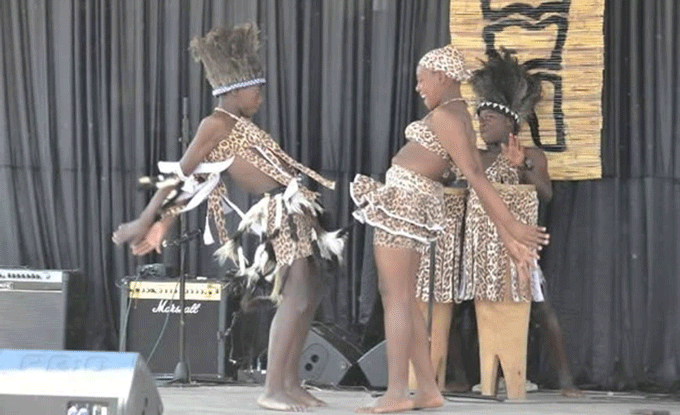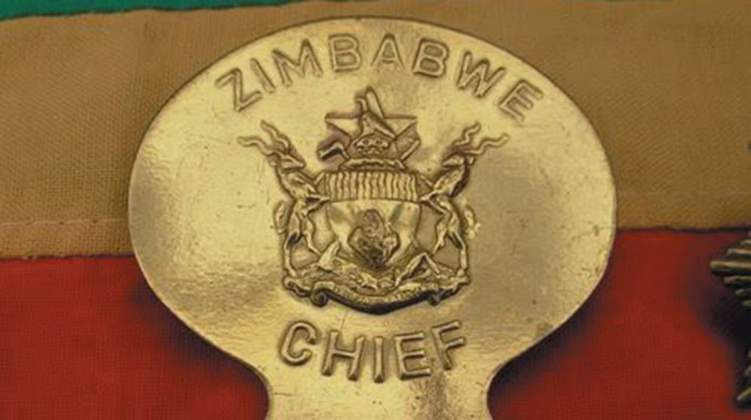
BY THOMAS CHIDAMBA
According to renowned American historian David Lowenthal, to neglect heritage is a cardinal sin, to invoke it is a national duty.
This rings true of Mbende-Jerusarema dance, which is popular in the Uzumba and Maramba Pfungwe districts in Mashonaland East province.
Mbende often called Mbende-Jerusarema dance presents Zimbabwe’s rich cultural diversity and demonstrates the core principles of the maBuja life and its practice makes sure there is continuity of the traditional knowledge shared by groups and communities of Murehwa and the country at large.
The dance is one of the few African expressions that appear on UNESCO’s list of Masterpieces of the Oral and Intangible Heritage of Humanity, making it one of the largest dance repertoires in the world.
Gule Wamkulu or Nyau Dance is another intangible heritage listed.
Great Zimbabwe University director of the Centre for Culture and Heritage and Unesco chairperson on African Heritage Thomas Thondhlana said intangible heritage was important oral archive for national history.
“In Africa the intangible heritage becomes an important oral archive for clan and national histories. Skills of memorising short stories and the art of composing poems, songs and dances allow intangible heritage to be passed from one generation to the next,” he said.
- Chamisa under fire over US$120K donation
- Mavhunga puts DeMbare into Chibuku quarterfinals
- Pension funds bet on Cabora Bassa oilfields
- Councils defy govt fire tender directive
Keep Reading
Another academic Jairos Gonye said Mbende was an indicator of a nation’s tradition, identity and uniqueness.
“It (Mbende Jerusarema dance) is an important vehicle for development of cultural heritage because it transmits from one generation to another, a wealth of knowledge and skills that are relevant to the people of Murehwa.
“This transmission is essential to understanding the UMP community as well as Zimbabwean cultural lifestyle because traditional dance and music have always been instrumental in addressing issues affecting and bedeviling society.
“Hence, Mbende dance has evolved to become an indicator of a nation’s tradition, identity and uniqueness,” he said.
Mbende has been an age old dance practiced symbolically for fertility, sexuality and familyhood.
At times, it was used as a war dance to deceive opponents.
However, with the advent of colonial rule and the influence of strict Christian missions, the dance was strongly condemned as it was deemed unholy, provocative, indecent and encouraged laziness, prompting to its ban by the brutal colonial government in 1910.
But despite the ban, it refused to die.
“With the incoming of Christianity most of these dances are viewed negatively. They were largely seen as devil worshipping as such most people shun joining institutions of traditional dance because they are branded paganist practices,” said Brian Banda, a former radio personality and scholar.
“Modern religious beliefs tend to be against traditional dances for instance, some apostolic families don’t want their children to participate in traditional dances which they see as evil. So these dances have been weakened due to the effects of modernisation, migration of diversity of religions,” he said.
Thondhlana weighed in saying: “During the colonial era intangible aspects of the African heritage were seriously marginalised and denigrated. Some African forms of cultural expression like dances were outlawed during the colonial era. Missionary evangelism and colonial administration were directly threatened by the continued existence African institutions, festivals and rituals. African cultural practices faced stiff opposition from the whites who wanted Africans to leave their way of life to join the band wagon of capitalism. While churches were recruiting Africans to follow their religion some pieces of legislation were passed to deter Africans from their cultural practice. A very good example is the Witchcraft Suppression Act Chapter 73 of 1899 which was enacted in the then Rhodesia.”
After its ban, locals connived to deceive the colonial administrators by changing its name to a more Christian-looking one — Jerusarema, after the Biblically sacred Jewish city.
But, its choreography, symbolism and meaning remained the same.
Mbende could not be totally suppressed because then African societies had an important link between spiritual and material dimensions and it became a source of pride and identity during in the liberation struggle against colonial rule. After independence it was renamed Mbende-Jerusarema.
Now, the dance is at risk of losing its original character and meaning as it is not afforded the much needed attention it deserves and is now increasingly used out of context.
“To survive the onslaught of globalisation and acculturation some communities have revived intangible heritage practices in the more artificial way in the form of cultural dramas and performances which are meant for entertainment. As we have noted above this has raised concern about the authenticity and commodification of intangible heritage. The revival and revitalisation of cultural expressions and traditions may turn toward tourist and commercial endeavour. However, in the absence of the original social context the rituals, know-how, skills, oral traditions and dances should be transformed, reinvented, revitalised and/or revised to suit contemporary contexts. The majority of the younger generation is not interested in traditional performances, crafts and skills,” Thondhlana said.
Prominent heritage expert and Lecturer, Tapiwa Mubaya decried lack of protection of the Mbende dance by the current intellectual property regime.
“Recognising traditional forms of creativity and innovations as protectable intellectual property would be an historic shift in international law, enabling indigenous and local communities as well as governments to have a say over the use of their traditional knowledge by others.
This would make it possible, for instance, to protect Mbende-Jerusarema dance against misappropriation, and enable communities to control and benefit collectively from their commercial exploitation,” he said.
The dance has been immortalised by the Zimbabwe Broadcasting Corporation that made it a signature tune for their television and radio stations news.
Follow Thomas on Twitter @chidambathomas










